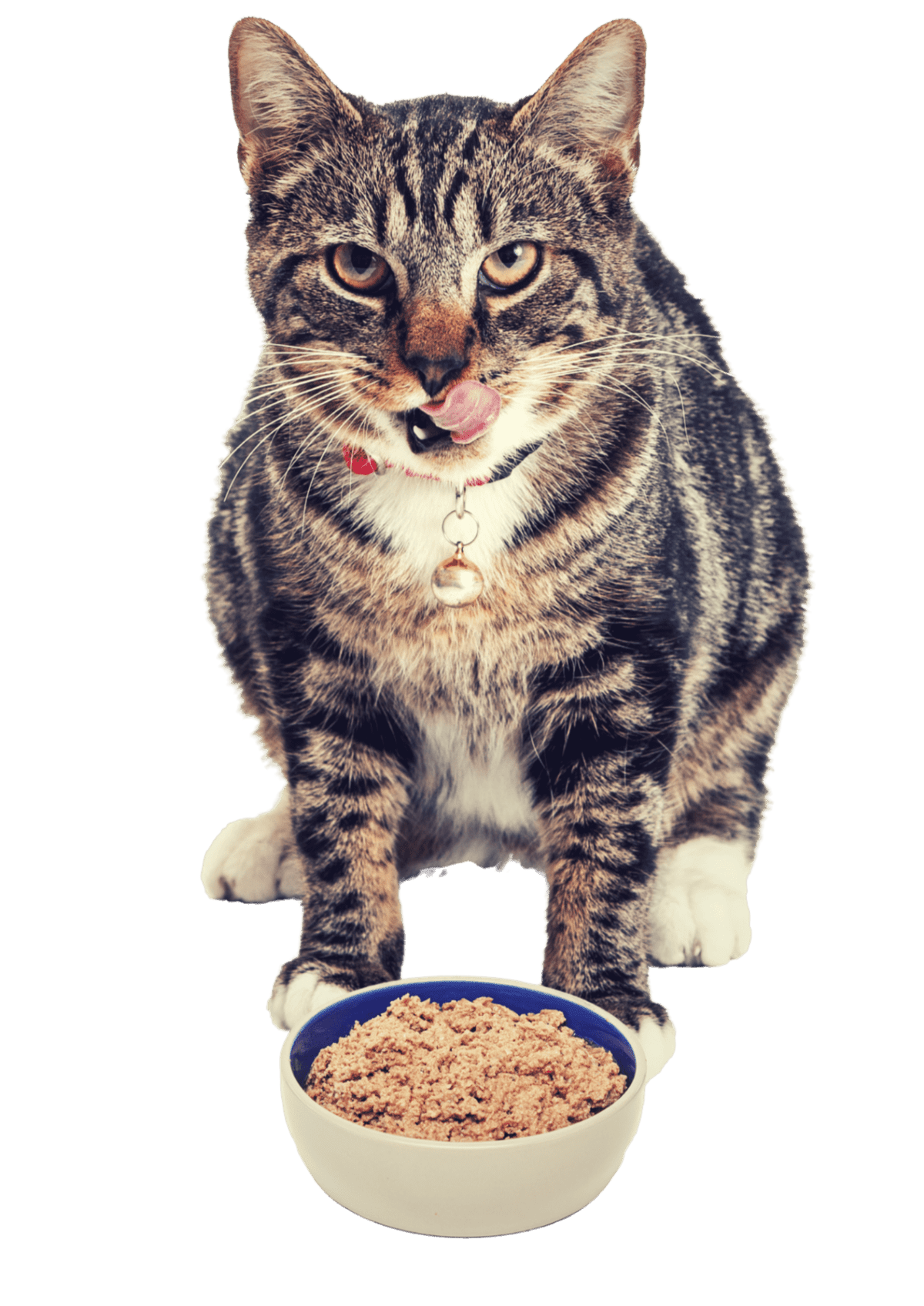Wondering what can cats not eat? Here is a list of 13 common foods found in many households that you should avoid feeding to your Cat.
I’m Sara and I’m a writer and a cat lover. I understand how cats have the tendency to eat any food they can find, even if it’s not good for them.
It’s up to all cat owners to make sure our feline friends don’t eat any food that may be harmful to them.
Both humans and pet cats regularly require a steady diet that is high in water and proteins and they mostly need wet food, but that's about where the parallels end for the most part.
Compared to dogs, cats have very distinct nutritional requirements, and several types of human meals can be seriously harmful to them, resulting in stomach disorders as well as vitamin deficiency, anemia, and perhaps even fatal illnesses. [1]
Several regular meals can be exceedingly toxic to pet cats, and if consumed in abundant amounts and on a continuous basis, they can lead to severe sickness.
Inflammation, obesity, abdominal pain, bladder, and urinary tracts difficulties, as well as liver or kidney damage, are just a few of the issues that might arise. Certain types of food, on the other hand, can be hazardous and even lethal in certain circumstances.
Even if the aroma of your food sizzling on the stove may pique the interest of your inquisitive cat, it's critical to understand how the components may influence their health before serving it to them.
The list below contains all the toxic foods that your cat should avoid at all costs.
Keep These Fruits Out of Reach
Despite the fact that some fruits are safe for your cat provided they are given as an occasional treat, however, there are also some that should never be given to them.
It is recommended that you keep your cat away from the following fruits:
1. Grapes and Raisins
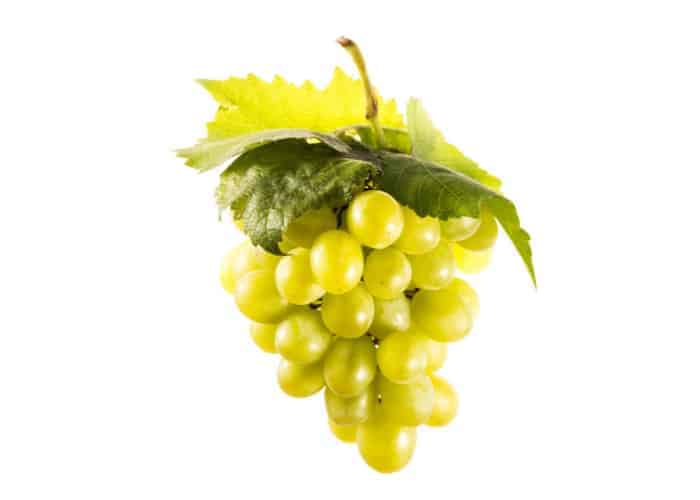
In cats, grapes and raisins have shown to cause kidney disease as well as digestive issues.
The consumption of these fruits has shown some associated and comparable effects in pet cats, albeit there is no conclusive evidence to support these claims.
However, according to a study from the American Society for the Prevention of Cruelty to Animals (ASPCA), fruits such as grapes and raisins are made up of an undiscovered poisonous chemical that might induce severe illness, including liver failure as well as kidney failure in cats. [1]
In order to be safe and curtail any health issues, the ASPCA highly recommends that you should avoid offering your pet cats fruits like grapes or raisins.
2. Oranges
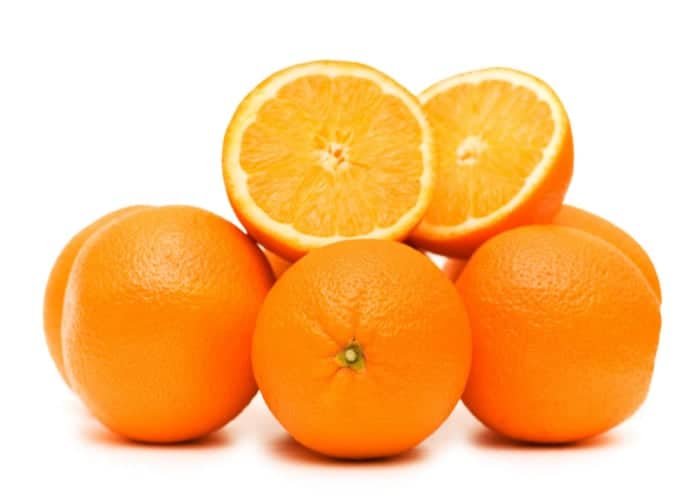
Orange seeds, leaves, stems, and peels contain oils that really are harmful, and they should never be consumed by your pet cat.
Furthermore, citrus fruits including limes, lemons, and grapefruits are high in acidity and may cause gastrointestinal discomfort in your feline companion.
Most pet cats do not like the taste of citrus fruits, which means they will most probably avoid eating them totally if they are available.
3. Cherries
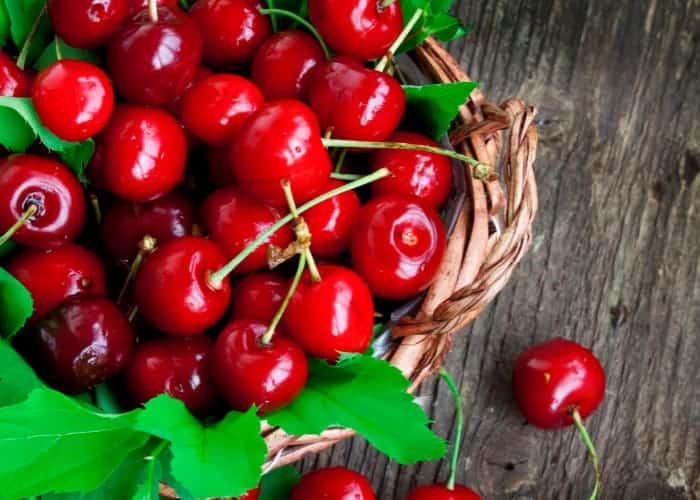
With the exception of the ripe fruit and its leaves, all other parts of the cherry bush are regarded to be extremely poisonous for your pet cat.
Even pits and stems of the cherry plant are all included in this category and are considered harmful for your pet cat.
4. Plums
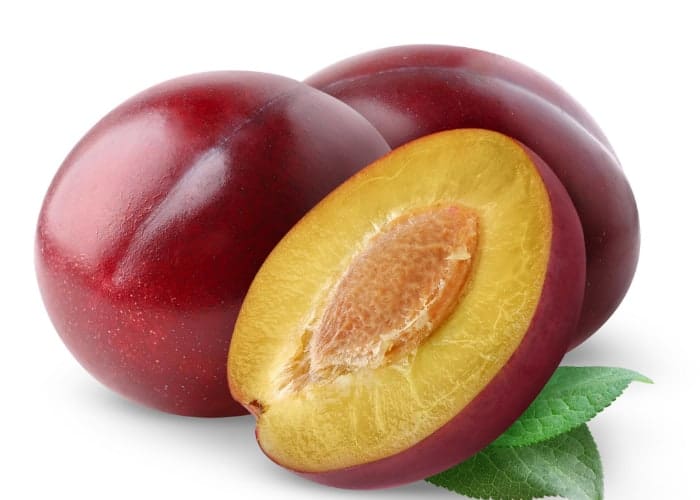
The cyanide found in the plum's seeds, stems, as well as leaves is hazardous.
Plums will always be dangerous for your cat pets, but they become even more dangerous when they begin to crumble as a result of the increased toxic concentration.
Move These Vegetables Out
Just as fruits, there are some vegetables that you really should avoid feeding your cat. The following are some examples:
5. Onion and Garlic
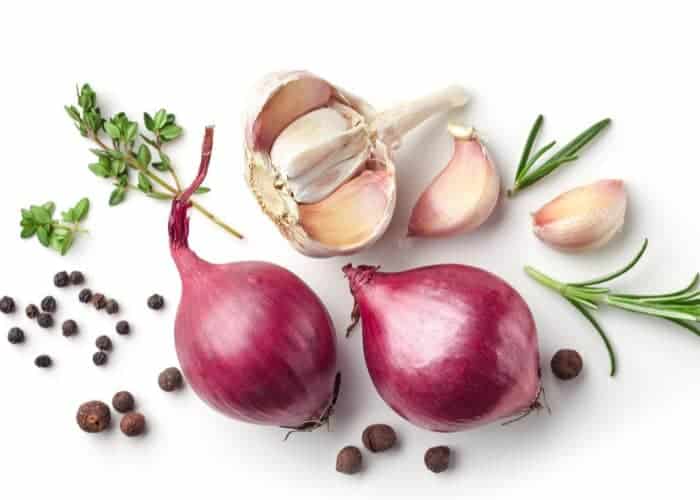
Almost all members of the allium family (especially onions and garlic) are harmful to cats if they are taken in massive amounts or picked on continuously over an extended period of time.
According to research, garlic is found to be five times more harmful and toxic to cats than onions.
Among other symptoms, onions can potentially make a pet cat's red blood cells disintegrate, resulting in tiredness, difficulty in breathing, and anemia.
Garlics (which are five times as toxic as onions), as well as chives, are also known to cause health concerns.
Onions, garlic, and chives should never be given to your cat, whether they are chopped, cooked, uncooked, or dried. [2]
6. Mushrooms
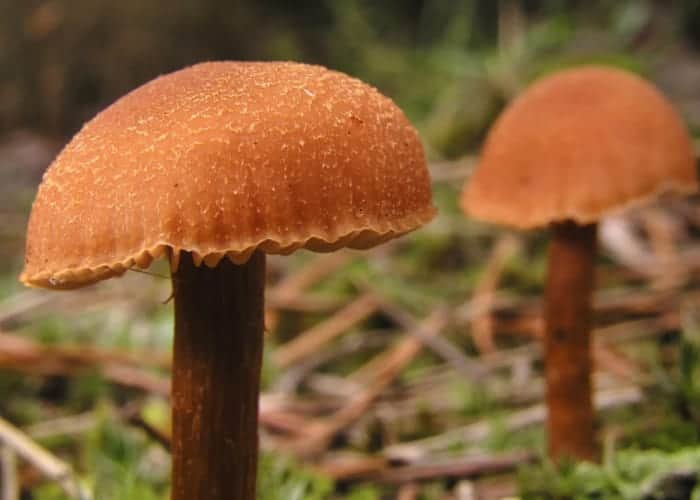
Despite the fact that the most commonly available mushrooms are harmless for cats to consume in small amounts, you should never feed your cat wild mushrooms because they are potentially deadly.
Mushroom intoxication is associated with symptoms such as diarrhoea, stomach issues, an increased heart rate, as well as hyperpigmentation.
7. Raw meat, fish, eggs
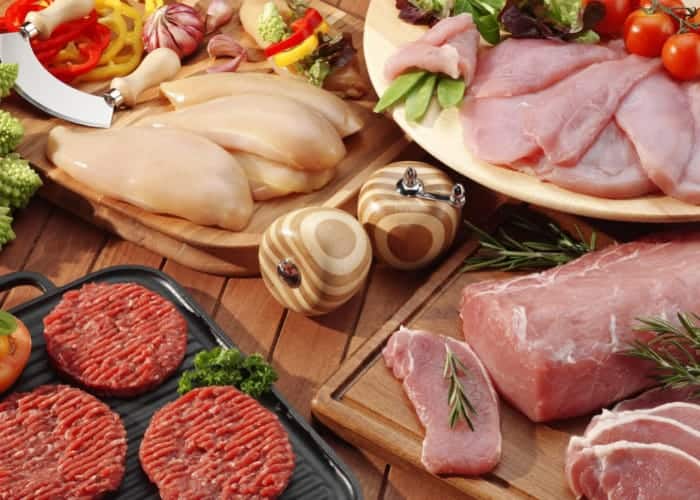
Uncooked meat, fish, and eggs can all harbor viruses and bacteria that are particularly toxic, such as E. Coli and Salmonella.
It is possible that this bacteria will be dangerous to both people as well as vulnerable animals.
Furthermore, some types of raw meat may contain a high-calorie content, which may lead to pancreatitis in pet cats.
In accordance with findings from WebMD, foods like raw eggs and raw egg whites contain some harmful substances that reduce the ingestion of vitamin biotin in animals, which could also result in serious issues such as skin and coat abnormalities in animals.
Raw fish likewise contains a dangerous substance that degrades thiamine, another B vitamin that is important for good health. Cats can suffer neurological difficulties if they do not receive enough thiamine, which can result in seizures as well as coma. So, pet owners should avoid giving raw food including raw tuna, raw piece of meat, and others to their cats.
8. Small bones
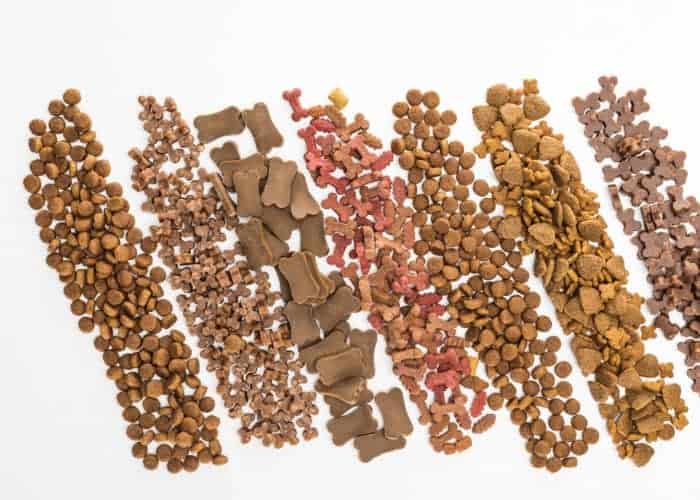
In the course of digestion, small bone fragments have the potential to get trapped in your pet cat's throat or even stomach as a result causing harm to the stomach, digestive passage, and gastrointestinal tract.
If you cook coarse bones (roasted or boiled), you won't have to worry about them breaking down because your pet will readily detach them from the flesh and they will be helpful to their teeth.
9. Milk
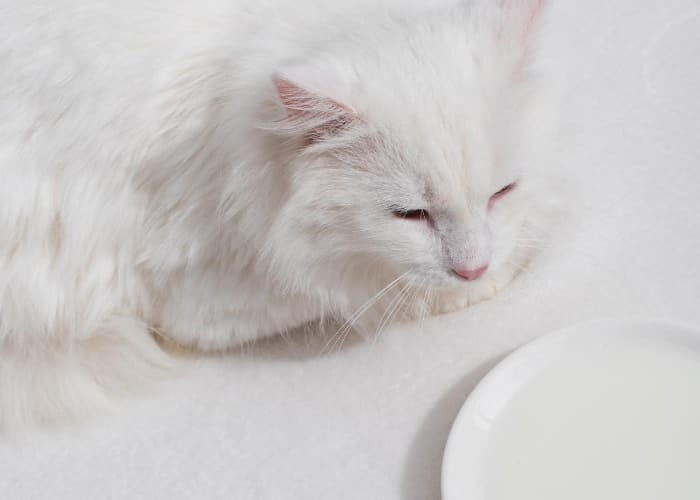
As kittens transition from their mother's milk toward regular meals, the enzymes required for processing the lactose found in milk and other dairy products begin to deteriorate in their bodies.
A large proportion of cats acquire lactose intolerance and become incapable of digesting dairy products.
The consumption of milk by a lactose-intolerant pet cat can cause a number of illnesses, including diarrhoea and vomiting, as well as liver problems.
Furthermore, consuming large or recurrent amounts of milk containing lactose might result in stomach pain and constipation, particularly in elderly cats.
10. Cheese
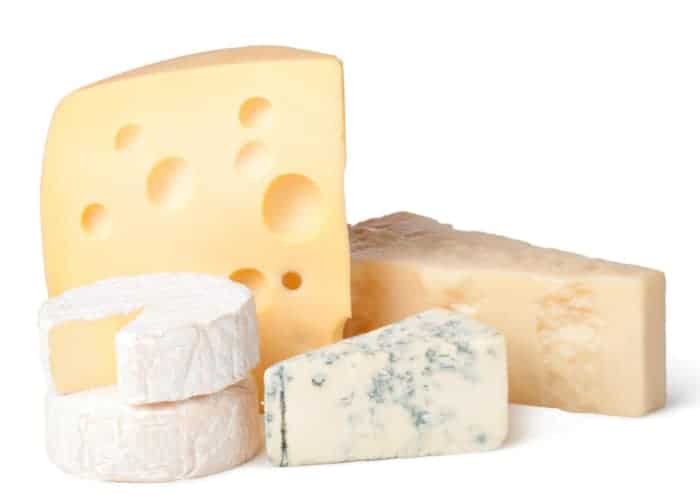
As cheese has less lactose content than milk, several cats may digest it better than milk, but you should still be cautious when feeding cheese to your pet cat.
Even if you do decide to feed your cat cheese, only a tiny portion should be given to them on a regular basis.
Excessive consumption of milk and perhaps other dairy products might have a negative impact on your cat's gastrointestinal and digestive tracts.
11. Chocolate
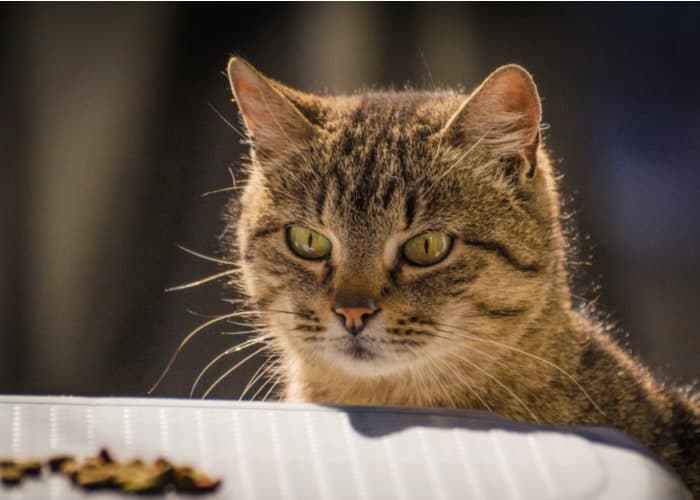
Methylxanthines, which have been naturally produced chemicals present in a number of plant species, are discovered in the cacao seeds which are used to manufacture dark and white chocolate.
Theobromine, as well as caffeine, are two forms of methylxanthines that can be extremely harmful to pet cats if consumed in large quantities.
Cats who have white or dark chocolate intoxication typically exhibit symptoms such as diarrhea, vomiting, fast breathing, high fever, muscle rigidity, heart disease, enhanced reflex reaction, seizures, cardiac arrest, and coma.
From time to time, chocolate poisoning can even cause death in some cases.
12. Dog Food
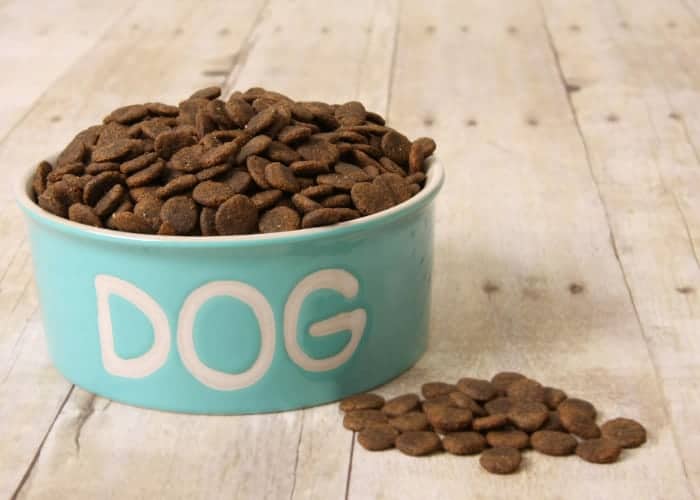
Many of the elements in dog food are much the same as in cat food, so an infrequent nibble here and there will not be detrimental.
You should ensure that dog food, on the other hand, can not be used as a replacement for regular food for cats.
Cats have special dietary requirements, which are met by cat chow, which contains high levels of the source of protein, vitamins, as well as fatty acids, among other things.
It is never acceptable to use dog food and solid food made for dogs as an alternative to cat food.
According to research, feeding cats, a consistent diet of dog food can lead to catastrophic malnourishment and even food poisoning.
So, avoid using pet dog food as a substitute for cat food.
13. Bread and Yeast
Honestly bread has no nutritional value attached to it. It is safe for cats but it contains no fat or protein, hence it cannot be replaced by their normal cat food.
Raw bread and Yeast are not safe for cats. Once eaten, the dough may result in the rise in stomach and may cause some serious digestive issues.
What Foods Should Kittens Eat?
During their developmental stages, kittens should be fed kitten food or common foods that have been labeled for all domestic cats' life stages. No matter how many new foods are offered, this must stay their predominant dietary staple because more and more changes in diet may cause gastrointestinal distress and lack of appetite.
On the other hand, if your kitten reaches adulthood eating only one meal a day, he or she will feel a connection with that meal, making subsequent food transitions problematic.
So, you might think about serving scrambled eggs, cooked meats, canned food, seafood, lettuce, and vegetables as a side dish. Always bring new pet meals progressively and serve them in little portions to avoid overstimulating them.
You must take into account that these cat meals should not account for more than 10% of your kitten's total calorie intake; surpassing this percentage may cause the nutritional balance of their diet to become unbalanced. Likewise, present one new and extra food item at a time to give your pet the opportunity to try and become accustomed to the new baby food product.
How To Stop Cats From Eating Potentially Harmful Foods?
The sort of food that your cat consumes has an impact on her life and well-being. It is your responsibility to keep dangerous and hazardous items such as darker chocolate and raw meat out of her grasp and to ensure she eats nutritious foods in order for her to remain healthy and happy.
Food should be stored out of reach of your pet cat. If you have a curious feline friend, you may want to consider setting up pet cat-proof locks on your kitchen cabinets. Allowing your pet cat to sit on the kitchen countertop while you're making food or dining is not recommended. Please do not give her leftover food.
During the holidays, it is extremely crucial to practice more mindfulness. Many human foods are likely to be more attractive than cat food, and many of these can irritate your cat's stomach or possibly cause her damage.
Final Thoughts
In short, there is almost every type of food that you need to keep away from your feline friend. Quickly take your pet cat to the vet if you detect or believe that she has consumed either of these human food items.
Though some of these human foods may just cause mild irritation in your pet cat, due to some medical reasons, some foods for cats might be significantly more harmful to her overall well-being and health. If you are unsure, consult your veterinarian for advice.

